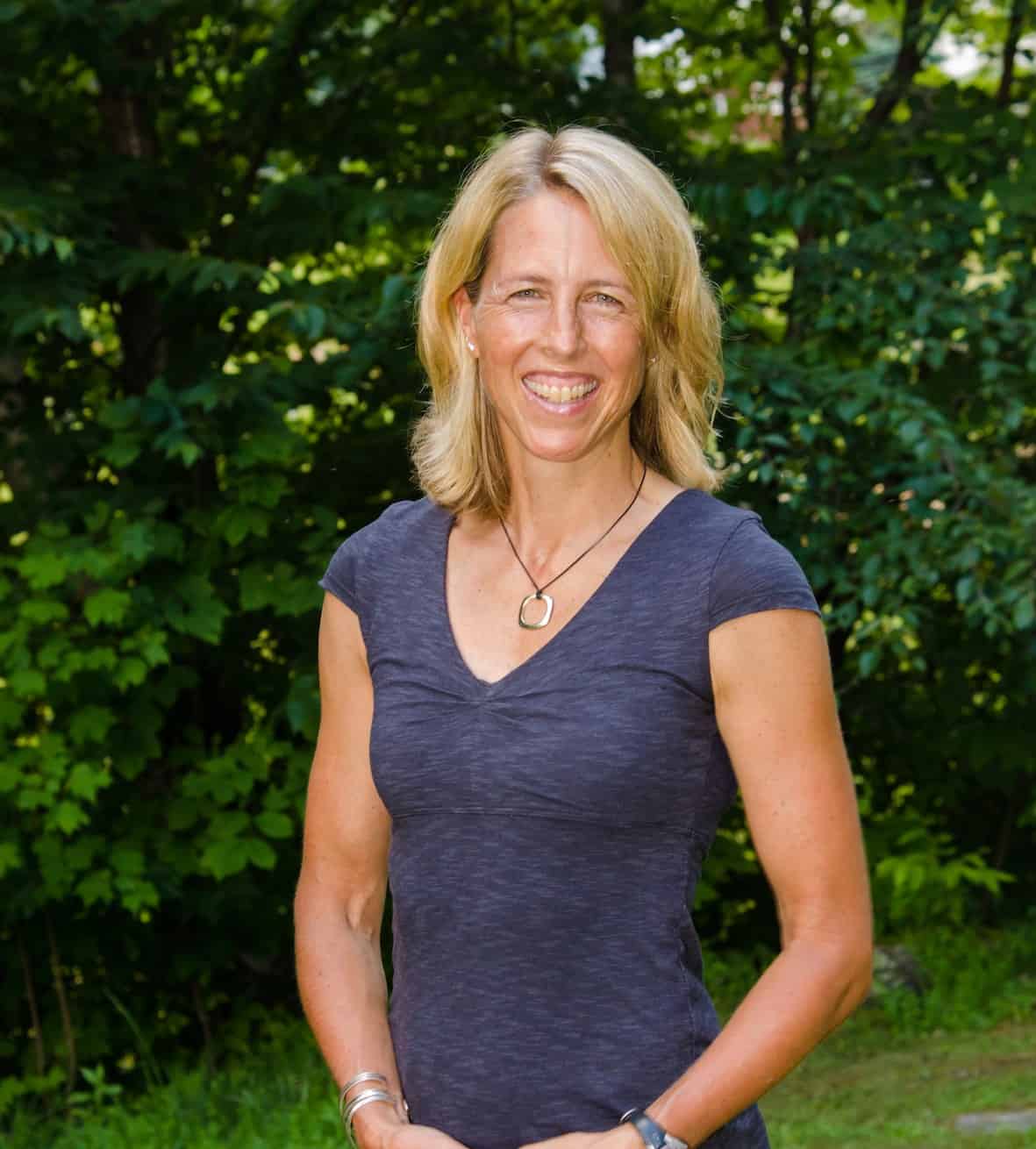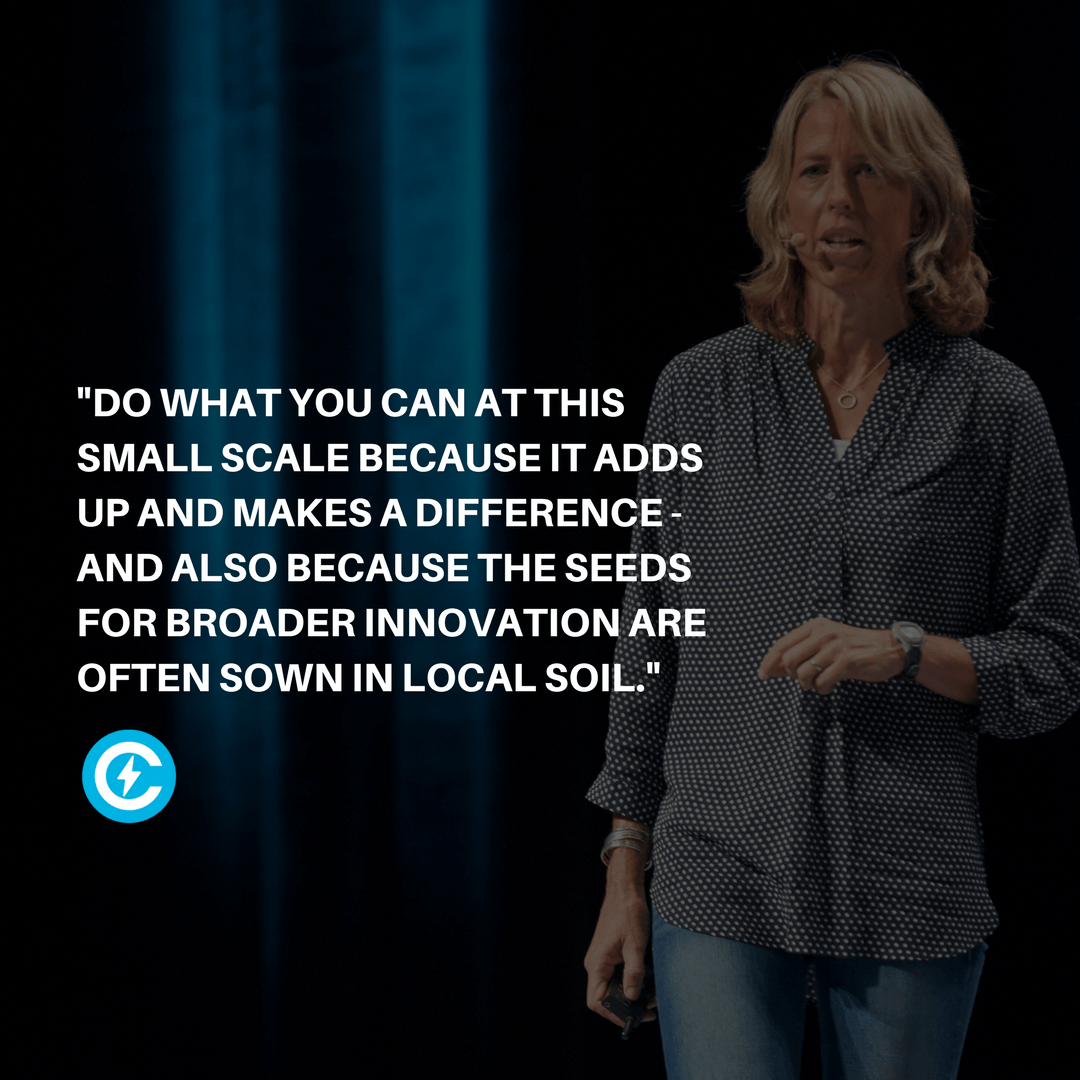1% for the Planet is a global organization that connects dollars and doers to address the most pressing issues facing our planet. We are a network of 1,200 member companies and thousands of approved nonprofit partners located in more than 40 countries. Started in 2002 by Yvon Chouinard, founder of Patagonia, and Craig Mathews, former owner of Blue Ribbon Flies, our members have given more than $150 million to environmental nonprofits to date. Learn more at onepercentfortheplanet.org.
Below is a Q&A with the CEO of 1% for the Planet, Kate Williams.

You have been CEO for nearly two years now. What have been some of the challenges that perhaps you didn’t envision facing. Subsequently, what has been inspiring to you about the position you are in?
I think the biggest challenge has been remembering to take a deep breath and pace myself. I believe – and our whole team believes – that we have a huge opportunity to grow our reach and impact. We feel that the planet needs us – the private sector – now more than ever. So we feel both purpose and urgency, and we all sometimes want to move more and more quickly. But even as I feel this desire to get to bigger scale and impact as soon as we can, I already and on a daily basis feel inspired and affirmed by the growth and engagement we are seeing. I’m always inspired by the fact that this engagement and growth plays out in very tangible ways: Our global reach is the aggregation of meaningful on the ground work by purposeful people everywhere. That is inspiring.
When 1% For The Planet vets nonprofit organizations, what are you looking for in these organizations?
Any nonprofits who come to us for approval must be referred from within our network – either by a 1% for the Planet member, staff, or individual. This referral is the first layer of our approval process. At the most basic level of our internal review, we look for the necessary IRS determination and sound financials. We also ensure that the environment is the primary focus of the nonprofit, which we assess by reviewing budget allocation, mission, and website content. A nonprofit receives basic approval if it passes these initial checks.
Moving forward, we will have phases of further engagement focused on assessing the impact a nonprofit delivers. This will be implemented this through our Strategic Impact Advising program and a more in depth process involving questionnaires and interviews. Nonprofits will be able to move through stages of engagement with our support, creating an ever more robust and data rich network of vetted and approved nonprofits.
Do your member businesses go through a similar process of vetting when they want to become part of the 1% community?
Our primary organizational goal is to accelerate smart environmental giving. In this context, we do not have a policy to exclude any particular industry, and believe that at the very least we want to be open to conversations with any companies who choose to explore a 1% commitment. We do, however, reserve the right not to move forward with particular companies that we deem to be potentially brand damaging or not aligned with our mission. To date, we have only excluded a very limited number of companies.
For those who don’t know much about climate change and the current state of our environment, what would you say are the 3-4 things we as a nation, communities, and citizens really need to be aware of?
First and foremost, I would say that citizen voice and action are critical! While this mother of all environmental issues can feel overwhelming, and we don’t really know where we are relative to the tipping point, our determination to act and advocate is hugely important.
Second, think small and local. There are actions you can take in your house, in your community, through your purchases, and at the local and state government levels. Do what you can at this small scale because it adds up and makes a difference – and also because the seeds for broader innovation are often sown in local soil.

Third, think big and global. Unfortunately, our local actions alone are probably not enough. Read the interview with James Hansen, climate scientist, in the January 2017 issue of Rolling Stone. He sounds the clarion call for investing and governing differently in order to attain the change we need. This is our reality. Whether we like it or not, we need to expect more and different from our big companies and our big government. We also must stay informed and get involved.
Lastly, protect what you love with passion and tenacity. Lean in to protect a local open space because it feeds your soul, or clean up beach trash because the ocean is your happy place, or donate to organizations focused on endangered species because you have a deep commitment to the non-human species with whom we share this planet. All of these are hugely important activities, and can fuel your direct connection to the places and creatures that are affected by climate change. This is important, and will power your larger commitment to our planet.

